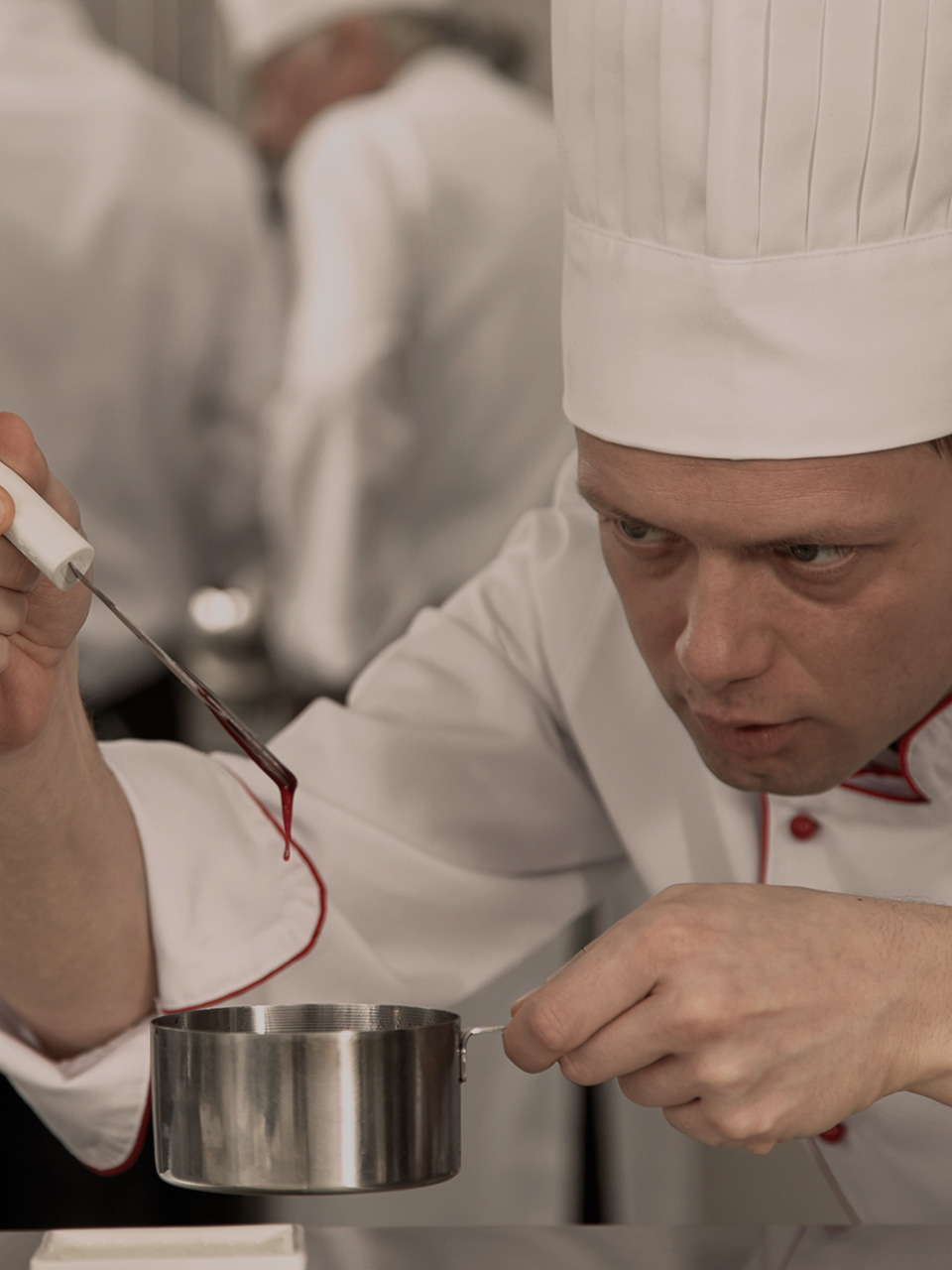
Tap to Read ➤
Skills to Become a Saucier
Rave Uno


A cooking specialization in the culinary career field is that of a saucier or chef in charge of making sauces. This job combines cooking knowledge and expertise, as well as creativity and the ability to work under stress. Learn more about the skills and education necessary to become a saucier.

We may live without poetry, music and art;
We may live without conscience, and live without heart;
We may live without friends; we may live without books;
But civilized man cannot live without cooks. - Edward Bulwer-Lytton
We may live without conscience, and live without heart;
We may live without friends; we may live without books;
But civilized man cannot live without cooks. - Edward Bulwer-Lytton

Good ingredients do not guarantee a good dish. It takes the careful hand and eye of a chef to craft a culinary masterpiece out of raw ingredients, especially in fine dining establishments. But cooking in such an environment is not a one-man job.

It takes a team of chefs to make one creation, each chef contributing his or hers unique touch to the dish. In a kitchen, cooks are organized into ranks. At the top is the head chef or the executive chef, the boss of the kitchen. His assistant and second-in-command is the sous-chef. Below these two ranks, are the chef de parties or station chefs.

These are specialized cooks, dealing with specific areas of cooking. One example is the rôtisseur, who deals with the roasting and braising of meat or the fish chef, who is in charge of preparing fish dishes. A high rank of station chef is that of the sauté chef or saucier.
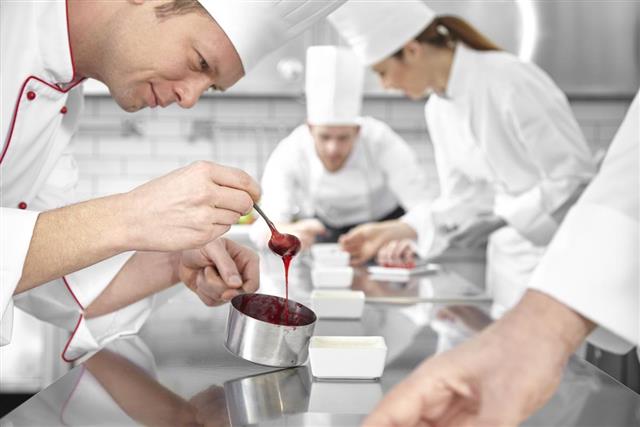
The saucier is in charge of food sauces and the dishes that go along with them. He must prepare all sauces used in the kitchen, from the gravy in dishes to simple pasta sauces. He must also arrange the sauce on the dish in an artful manner.

The saucier handles stews and entrées as well as sautéing various ingredients. He is regarded as the third-in-command for a kitchen hierarchy of order, directly under the sous-chef and the head chef and is the highest ranking chef of all the station cooks.
How to Become a Saucier
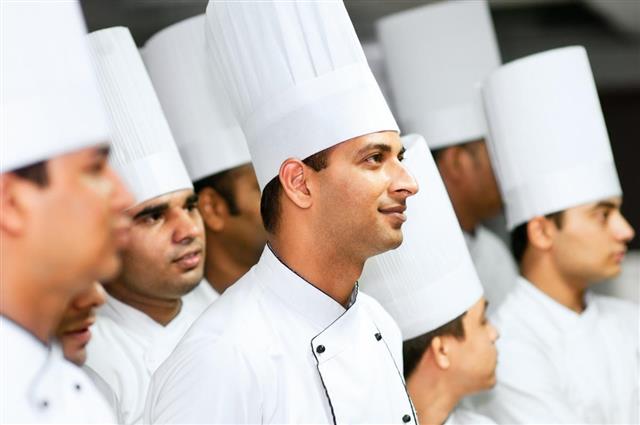
The various aspects and requirements to becoming a saucier are:

Education
A high school diploma or a General Educational Development (GED) certificate is the basic qualification required. After that a formal degree in a culinary art from a recognized institute such as a Bachelor's Degree or an Associate's Degree in Culinary Arts, is necessary to become a saucier.

Even a similar diploma from a vocational culinary school is acceptable. The degree should be from a good and internationally recognized institute, such as the Institute of Culinary Education (NYC) or The Kendall College School of Culinary Arts in Chicago. There are many top-grade culinary schools in the U.S. and abroad (if affordable).

The duration of the program should be between 2-4 years. The degree's syllabus should introduce the student to the practical and theoretical aspects of cooking.
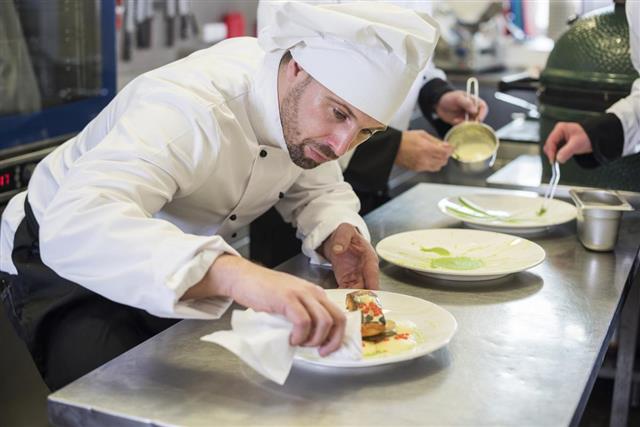
An aspiring saucier will learn the basics of cooking and preparing food, cooking styles and the art of choosing the right ingredients as well as culinary management skills such as menu planning and effectively using ingredients.

This basic degree lays the foundation for a chef's career, by preparing the aspiring cook for the culinary field and providing hands-on experience in cooking. Specialization in a particular cooking area, such as making sauces, should be done towards the end of the degree.

Experience
In the art of cooking, it is experience that separates a cook from the kitchen staff. A formal education is important, but actual cooking experience and time spent working under a head chef is essential. The different levels of experience required to become a saucier are:
Preliminary
After completing high school or getting a GED, one needs basic food training to develop their cooking skills. The best way to do this is to get a part-time or full-time job at a local restaurant or eatery. Try to work for fine dining or formal restaurants over diners, fast-food joints or bars.

At least 6 months of work experience in such an environment will teach the aspiring cook, how kitchens really work and how to work with food in a time frame, as well as how to handle pressure and responsibilities. Some culinary institutes expect a certain amount of experience to join a degree course.

Along with educational qualifications, a saucier-in-training must learn more and more about cooking on his/hers own. Through cooking literature, the Internet and experimental cooking at home, he/she must enhance their own knowledge and remain up-to-date with cooking trends.

Internships/Training
While studying for a culinary degree, apply for unpaid internships or part-time jobs in dining establishments. The syllabus of the degree will involve practical activities, but the more experience, the better.

Small training courses and classes that provide some specialized hands-on skills or unique knowledge, such as French sauces or different mixing techniques, can be undertaken. These sort of classes can enhance the saucier-in-training's knowledge base and cooking expertise. They also focus mainly on practical activities, so it counts as chef training.
Apprentice Experience
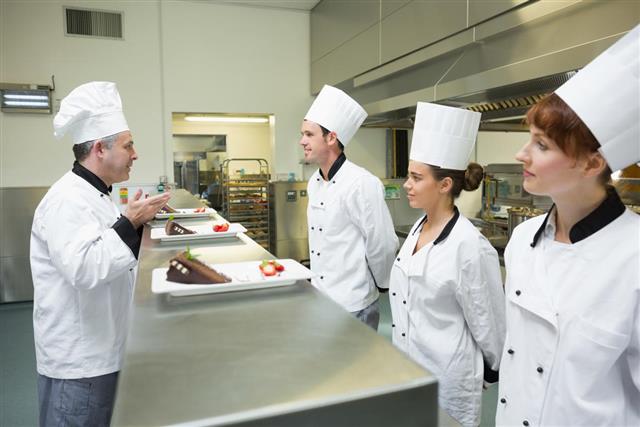
In order to learn the best way to do something, one should train under a master. In the field of cooking, no books or class can teach the tips and tricks of the cooking trade, quite like working under a master chef.

Working as a saucier's apprentice provides the cook-to-be, invaluable knowledge and details about being a saucier, how to hone one's sauce-making skills and how to work in a busy kitchen environment.
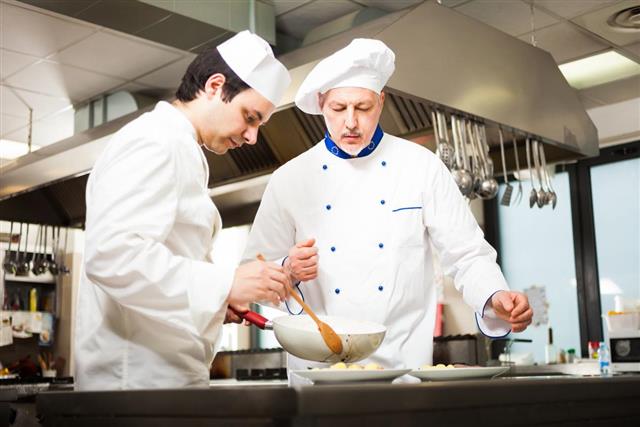
As a saucier is meant to serve under a chef, working as an apprentice also helps in learning how to work under authority and handle the pressures of the job. The apprentice also makes valuable connections in the industry.

Formal Experience
After completing a culinary degree, one must ascend to the rank of saucier by working in a fine dining establishment or restaurant for at least 2 years. The establishment where the experience was gained, should be of a high quality.

One can also work as a saucier's assistant for a few years, to be recognized as a saucier. In some cases, the master saucier will appoint his apprentice as his successor in the establishment, if his retirement is due or he plans to leave.

Expected Skillset
Experience and education aside, a saucier should possess certain skills and qualities to be a master at his craft. With respect to cooking, he should have the following qualities:
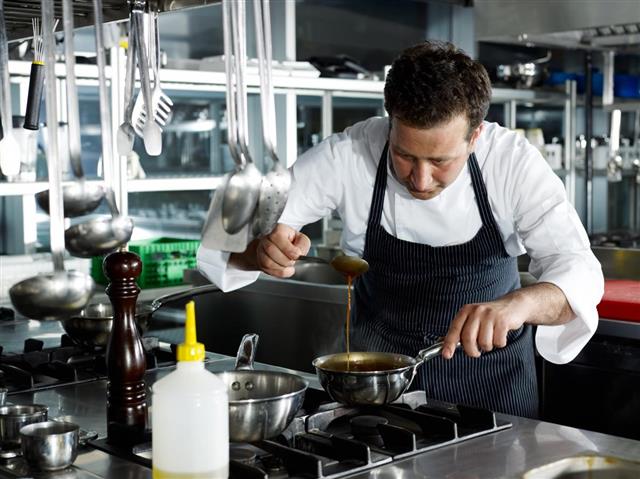
- Knowledge of various food items and how to handle and store them.
- Expertise and knowledge of various sauces and how to prepare them as well as their accompanying dishes.
- Ability to follow recipes and compute the quantity of ingredients and their usage.
- Insistence on detail, perfection and quality of food produced.
- Creativity with food, in case a new recipe is needed or an existing one should be customized.
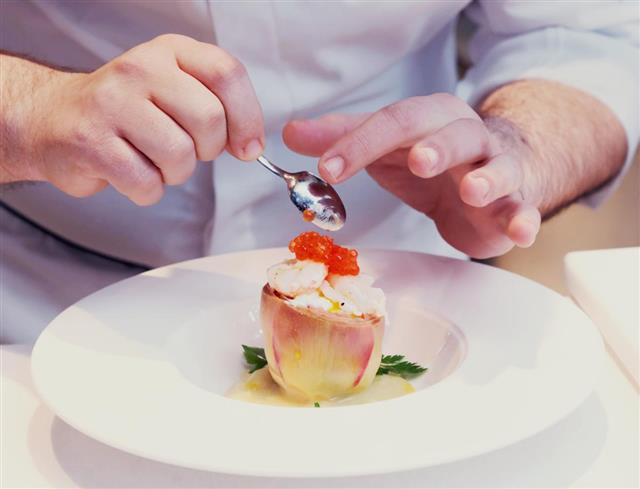
- Food garnishing, plating and presentation skills.
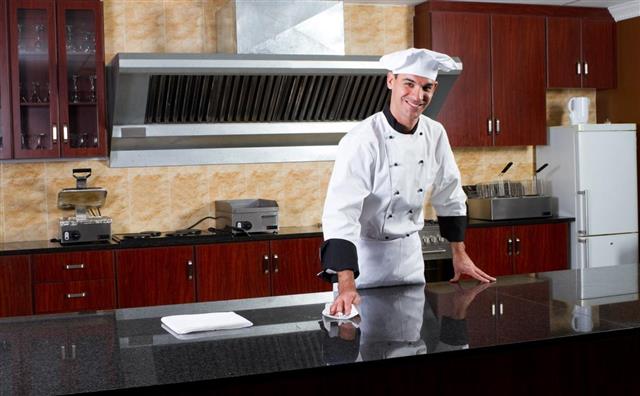
- An innate sense of cleanliness is needed, so that a clean work place and environment is maintained at all times.

His behavior should be:
- Ready to accept ideas and suggestions, as well as handle responsibilities from the master chef.
- Should be a team player with a sense of coordination to work with other chefs and cooks in the kitchen.
- Be able to handle fast paced work and multi-task.
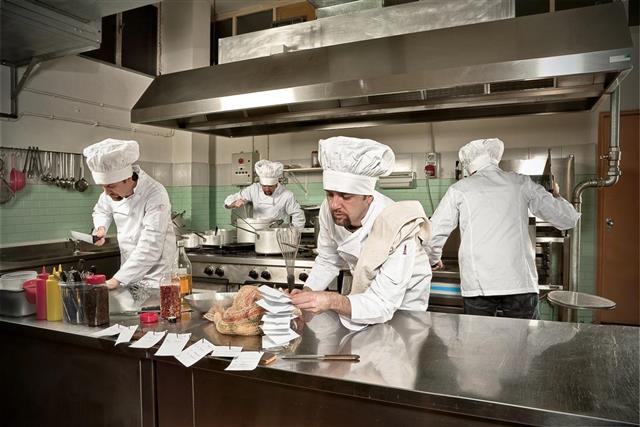
- Capable of handling the stress and pressure of kitchen responsibilities.
- Be courteous and tactful in dealing with customers.
- Handling heavy work shifts and continuous working days.

Cooking is a vocational art. You must enjoy what you do to create food as your passion makes a difference in the finished product. A flair and passion for working with food is necessary in any culinary position, but in the rank of a saucier, is extremely important.